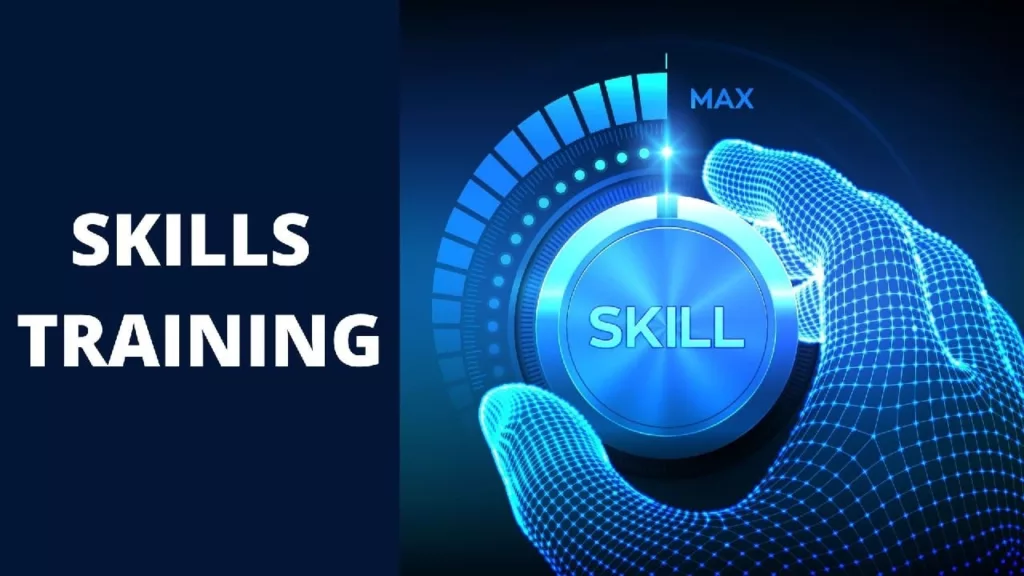
New clients, unlock 10% off all plans 🔥 at checkout with code: CEO10SPECIAL (Limited Time Offer)
New clients, unlock 10% off all plans 🔥 at checkout with code: CEO10SPECIAL (Limited Time Offer)






What I mean by that, just to clarify, is that starting a career is not easy, and getting your foot on the ladder can take time. In many ways, being desperate for a job can create stress that hampers your ability to get one, but harnessed efficiently, this can also be the vehicle that takes you to your chosen destination too.
Even so, the quest for that first step in your desired career starts with both the drive that it takes to achieve it, but also the ability to sell your attributes, highlight your strengths, showcase your skills, and prove to any potential employer why you are the person for the role you are applying for.
When I was young, the digital age that we now all take for granted was not yet in full swing, and handing in a paper resume was still the done thing.
Many people submit many more applications than they ever would have been able to without the internet. Much like online entertainment, the more options and opportunities there are, the more we tend to take advantage of.
Whether that is job applications, social media posts, online dating, iGaming, or playing online slots, the ability to do so many things, quickly and repeatedly online, and around the clock, has had a huge impact on our lives, as well as our job application processes.
Today, of course, many applications are done online, many resumes are submitted in digital formats and, to some extent, this has changed things both positively and negatively, at least in my opinion.
One of the major changes for those looking to start a new career, or even change careers, is the ability to submit applications online both quickly and in greater volume. Whether it is LinkedIn, Indeed, or any of the other job board platforms or applications and resume repositories, the opportunity to apply for a job online has created something of a congested application pool, to put it one way.
For every resume, there is a professional bio to consider, for every application, the rigorous selection process takes time and effort, and with the number of applications now submitted online, this has become a gargantuan task. This is especially true for in-house HR in companies that do not outsource their candidate selection and application screening.
This has, as my title suggests, created a situation where employers simply do not have the time to read through all their applications and, in an increasing number of instances, have to stop them altogether as hundreds pile in for just one role. With this level of competition and the pure numbers involved, starting a career has become a febrile landscape in terms of even getting an interview, let alone the job you may want.

There is an old saying – perhaps you have heard it – that goes like this, “you never get a second chance to make a first impression.” It may seem simple, but it is often true and always important to remember.
When it comes to job applications and starting your chosen career, it is a phrase that is absolutely critical to remember. From the moment you start to write your resume for submission, every word you put down could be what gets you noticed. When you get past the point of choosing the font, the style, and the aesthetics of your document, it is time to focus on the all-important substance.
Remember, it is all about selling yourself, your skills, your attributes, your abilities, your strengths, your talents. It may seem like you are drifting into the realms of blowing your own trumpet, as it were, and indeed you are… because you have to.
Nobody else is fighting your corner for the job, so you have to do so with all the positivity and self-promotion you can muster. It is one thing having a set of skills that may make you ideal for a chosen job, role, or career, but knowing how to sell yourself on those is quite another.
Put it this way: among such a crowded field of candidates, and that is almost always the case now with hundreds of applicants per job, across many fiercely competitive industries, getting noticed is difficult but necessary.
When your resume hits that recruitment inbox, what will make it stand out, what will ensure that it is considered, what will be in there that makes the hiring professional or team sit up and notice you? I am not saying this is easy; crafting a great resume takes time, effort, due diligence, and a great deal of care.
It’s about ensuring that what matters most is included, and at the same time, excluding extraneous information that is not likely to help. Don’t list every job, for example: just highlight the relevant experience and focus on what makes you the perfect fit for the job you’ve applied for.
In the overcrowded job marketplace, working your way through this congestion and getting to your destination is quite the journey, and that’s just to secure an interview! With so much at stake, getting your career started is clearly something that takes time and effort.
For some careers, professional, academic, or vocational qualifications are non-negotiable. There will be “must-haves” in terms of certifications, and also essential experience that cannot be left out.
In terms of professionalism, having those mandatory elements is the first step in terms of what you can apply for, how likely you are to be considered for a role, and what the likelihood is of you being suitable for the position. Then, of course, there are what I often call the intangible elements.
Sometimes, all candidates selected for interviews will have the same degree, same diploma, same certifications – and at this point, interviewers must look at other differentiators, both personal and professional, to use during screening and selection processes. This is where soft skills and pitching your potential really come into play.
There is, of course, a balance to be found. It is important to sell yourself and showcase your potential, but also to focus on facts, and highlight what you can bring to the given role in terms of potential growth and value for and to the employer.
Again, depending on the career in question, the conundrum is how far to go with this promotion of potential. In most cases, following your instincts is usually the right way to proceed, blending your personal sales pitch with a decent dose of what you think you could bring to a role that others in the job market perhaps could not.
When you find the right blend of professionalism and potential, it can really make a difference. In the interview situation, it is imperative not just to focus on your existing achievements and experience, but also on why you would be a truly valuable asset to the company or organization you are speaking with.
It may seem a little obvious, but part of personal pitches during the interview process involves conveying your personality. This will, of course, come through naturally to a certain extent, but your ability to fit in and deliver results to a company is something that all interviewers will be considering as they sit on the other side of the table and assess whether you are the person for the job.
We all, to some degree or another, want to fit in when it comes to the world in general, but in the workplace, fitting in is essential. Being a valuable team player, as well as showing individual initiative, is as important as being able to demonstrate your ability to do the main job role well.
To do that, of course, you have to be able to understand the industry – intimately. That’s particularly critical if you’re moving into a new or fast-changing space, like the crypto market. Imagine, for example, that you’re going to work at a Bitcoin casino and you’re preparing your resume or interview notes. You need to ask yourself, how do crypto casinos work? What will they expect from a new hire? How can you show that you’re a valuable asset in this particular market? Getting to grips with this will let you tailor your approach to exactly match their needs – bumping up your chances of scoring the job.
While this is particularly key in the more niche industries, even in the mainstream ones, nobody is going to want to hire you if you clearly haven’t done any research… so make sure you’ve got a good grasp on the industry and its foibles. Being prepared will help you be calmer for the interview, too, which we’re going to cover next.
Interviewing well is, of course, easier said than done. From the inevitable nerves that fill you as you walk into the room, to saying what you wish to say with the confidence that shows your ability as well as your suitability, it is one of the more stressful as well as important things you will do in your work life. What you want to do, of course, is interview well, come across as genuine, and ensure that you impress and inform the interviewing team as best you can.
Most people find this challenging, but doing well is within most people’s grasp as long as they focus on a few guiding principles during any interview. Confidence is key, but should never stray into arrogance – that is something I was told many years ago by a very wise area manager at a global corporation. He also informed me that trying to relax, while also demonstrating a genuine enthusiasm for the potential role is something that should be striven for, even though it is not always simple to achieve.
When you walk into any interview situation, the person or people interviewing you will likely already know your educational and professional experience background, so focusing on all the other reasons and abilities that may get you the job is of critical importance, as they will not be in possession of such knowledge when you arrive.
By way of conclusion, I think we can return to the original headline, the idea that jostling for jobs is now the norm, and that so many careers start with successful personal pitches. Of the many reasons that this is the case, we have discussed some of the most important ones and, at least in my opinion, and based on many years of being interviewed (and interviewing), they are worth taking note of. Ultimately, getting your career started requires a careful but critical blend of education, experience, confidence, knowledge, personality, presentation, and, of course, that killer resume that can be the springboard to success. It will never be easy to secure the right job, ace an interview, or even be the best candidate in every application situation, but following these steps will bump up your chances – and you deserve that.
Share
Further Reading
*The names and logos of the companies referred to in this page are all trademarks of their respective holders. Unless specifically stated otherwise, such references are not intended to imply any affiliation or association with CEOMichaelHR.
Land interviews 3x faster while submitting fewer resumes
Copyright © 2025, ceomichaelhr.com.
All rights reserved.
Land interviews 3x faster while submitting fewer resumes
Copyright © 2025, ceomichaelhr.com.
All rights reserved.

Learn the same techniques our expert resume writers have used to get thousands of clients closer to their next job
Unlock expert resume tips, start landing multiple interviews!

Stay connected to receive powerful career insights, updates, and inspiration that’ll help you hit your career goals.